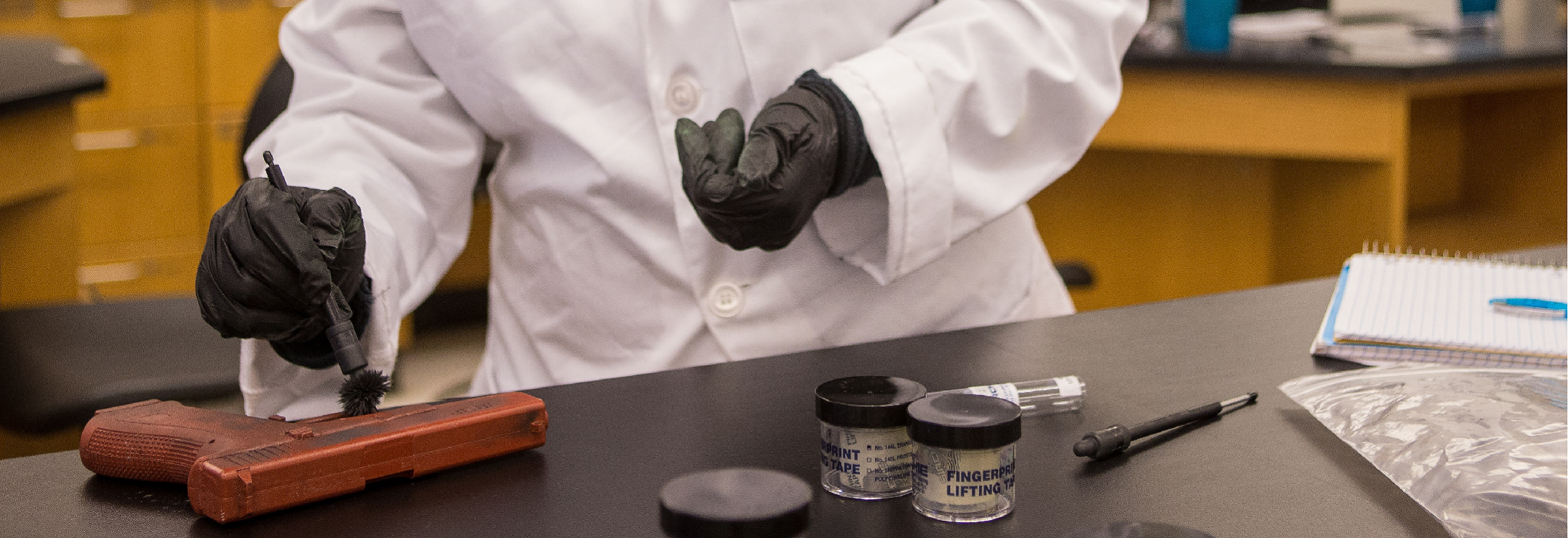Forensic Science Minors
What is Forensic Science?
Forensic science uses a multi-faceted approach to criminal investigation focusing on the identification, collection, and analysis of evidence which can link a suspect to the crime. Whether it’s physical evidence such as biometric identifiers, bodily fluids, ballistics, markings, or other types, forensic science plays a critical role in processing evidence for use in criminal prosecution. It utilizes principles and applications from many disciplines including the natural and social sciences and law. For this reason, our programs incorporate courses from art, biology, chemistry, criminal justice, and anthropology.
Forensic Science study at East Carolina University
Our students learn forensic science in the classroom, laboratory, and mock crime scene where they explore each aspect in the processing of criminal evidence. Our courses are taught by highly qualified faculty using many of the same methods and tools found in modern law enforcement agencies and crime laboratories. Our forensic science laboratory is equipped with modern-day instruments and computer software so students are learning current investigative applications. Whether it’s digital fingerprint scanning, computerized facial reconstruction, 3-D crime scene sketching, digital blood pattern mapping, chemical processing of bodily fluids, alternate light sources, crime scene photography, comparative evidence examination, or latent fingerprint identification, the lab has the tools necessary for students to learn each facet of criminal investigation.
Forensic Science for Crime Labs Minor
Forensic Science for Crime Scenes Minor
Employment of forensic science technicians is projected to grow 14% from 2023 to 2033, much faster than the average for all occupations” (Bureau of Labor Statistics, 2025)
